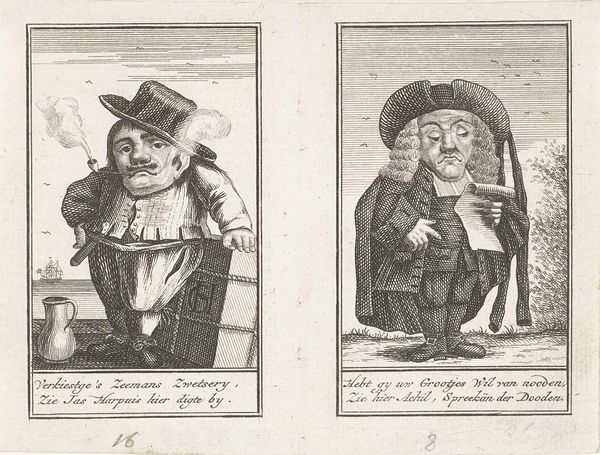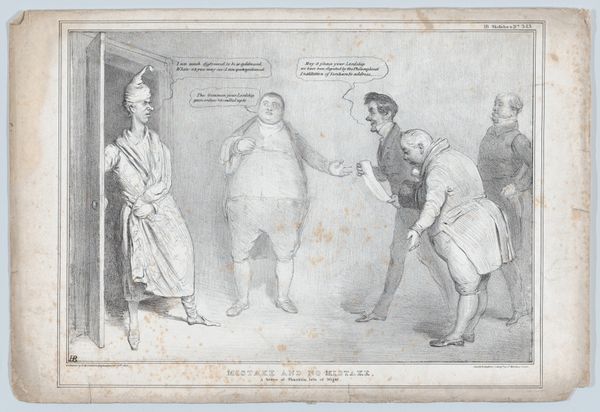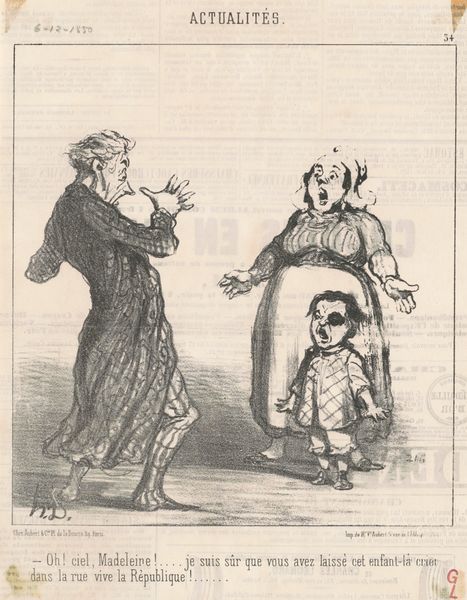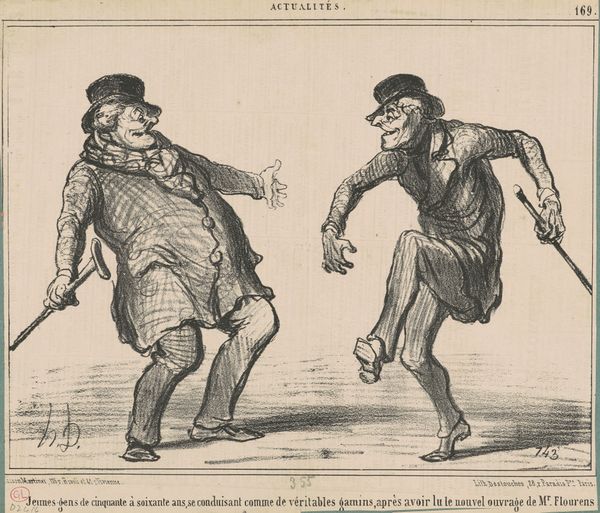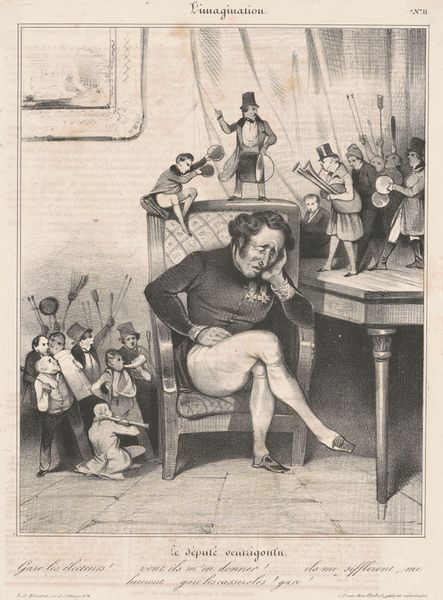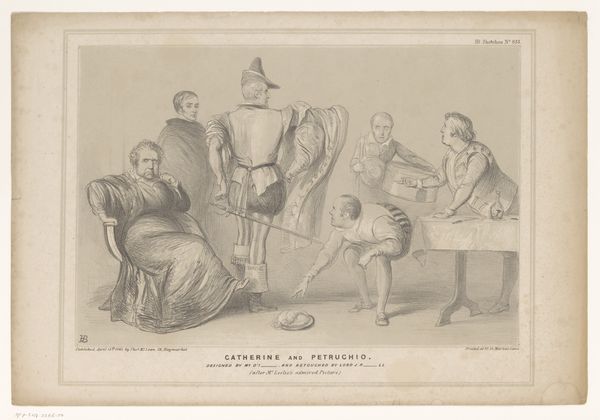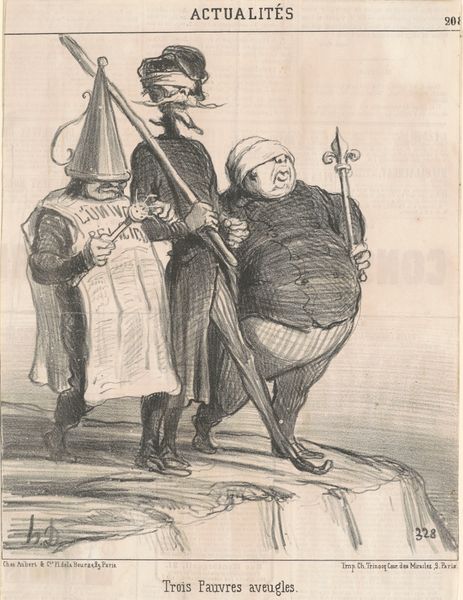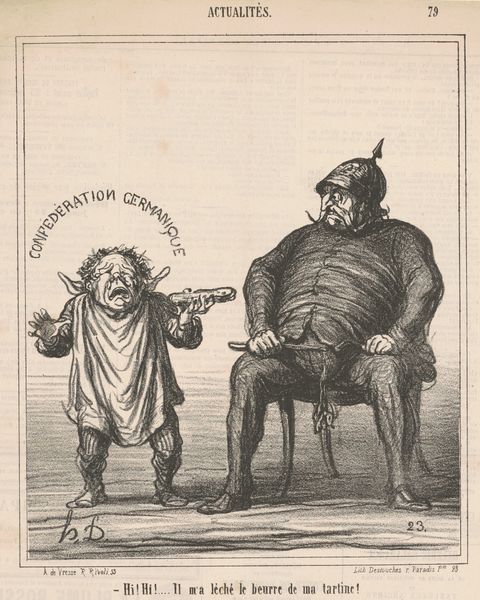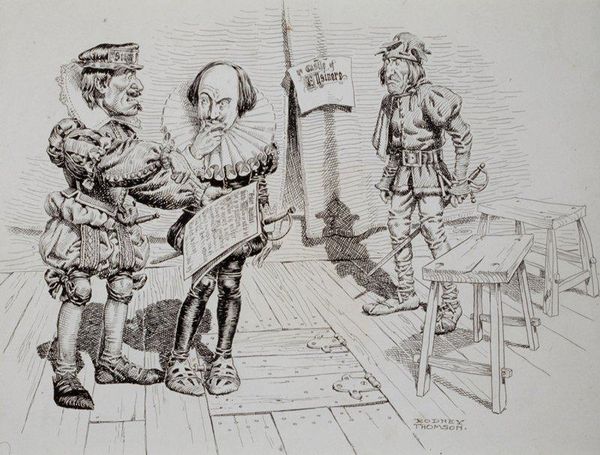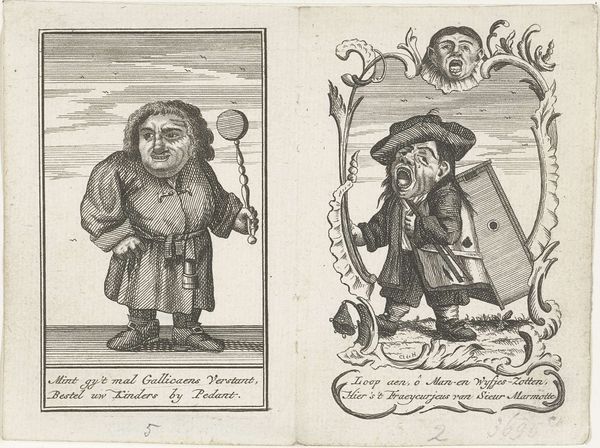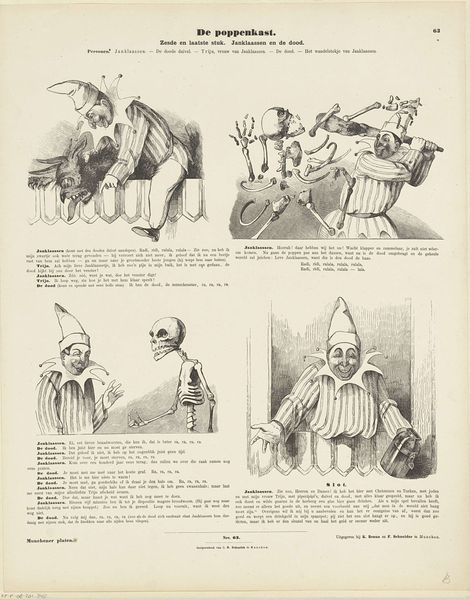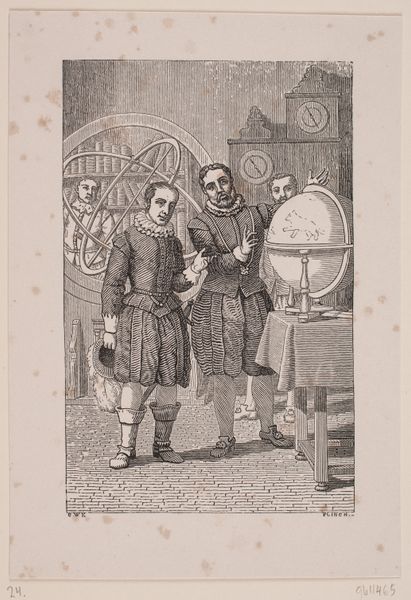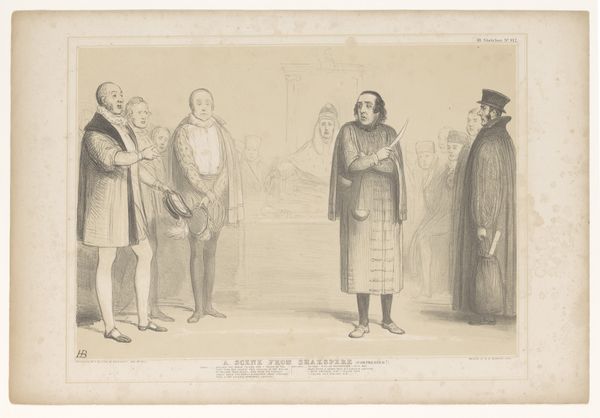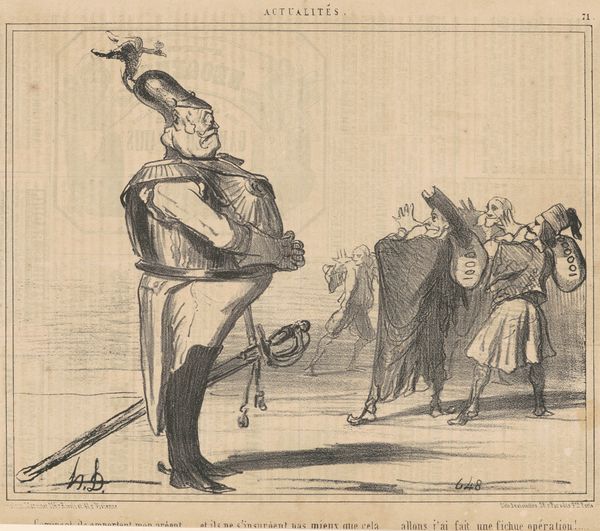
drawing, pencil
#
portrait
#
pencil drawn
#
drawing
#
pencil sketch
#
charcoal drawing
#
pencil drawing
#
pencil
#
genre-painting
#
graphite
Dimensions: height 150 mm, width 252 mm
Copyright: Rijks Museum: Open Domain
This print, "Dikke Kastelein en Trijntje Groot," was created by an anonymous artist using the technique of etching. This intaglio process involves using acid to bite lines into a metal plate, which is then inked and printed. The linear quality and fine details of the figures speak to the etcher's skill and labor-intensive process. The clothing of both figures, especially Trijntje Groot, is depicted with attention to the heavy drapery and layered ruffs. These are signs of status, and speak to the economic realities of the time, in which appearances were carefully constructed to convey social standing. We see the labor required to create and maintain them. The choice of etching as a medium also connects to wider social issues of labor, politics, and consumption. Prints like this one were often made in multiples, making them more accessible to a wider audience than paintings. This speaks to the democratization of art and the rise of a consumer culture in the early modern period. By considering the materials, processes, and social context of this etching, we can gain a deeper understanding of its meaning and significance, challenging traditional distinctions between fine art and craft.
Comments
No comments
Be the first to comment and join the conversation on the ultimate creative platform.
